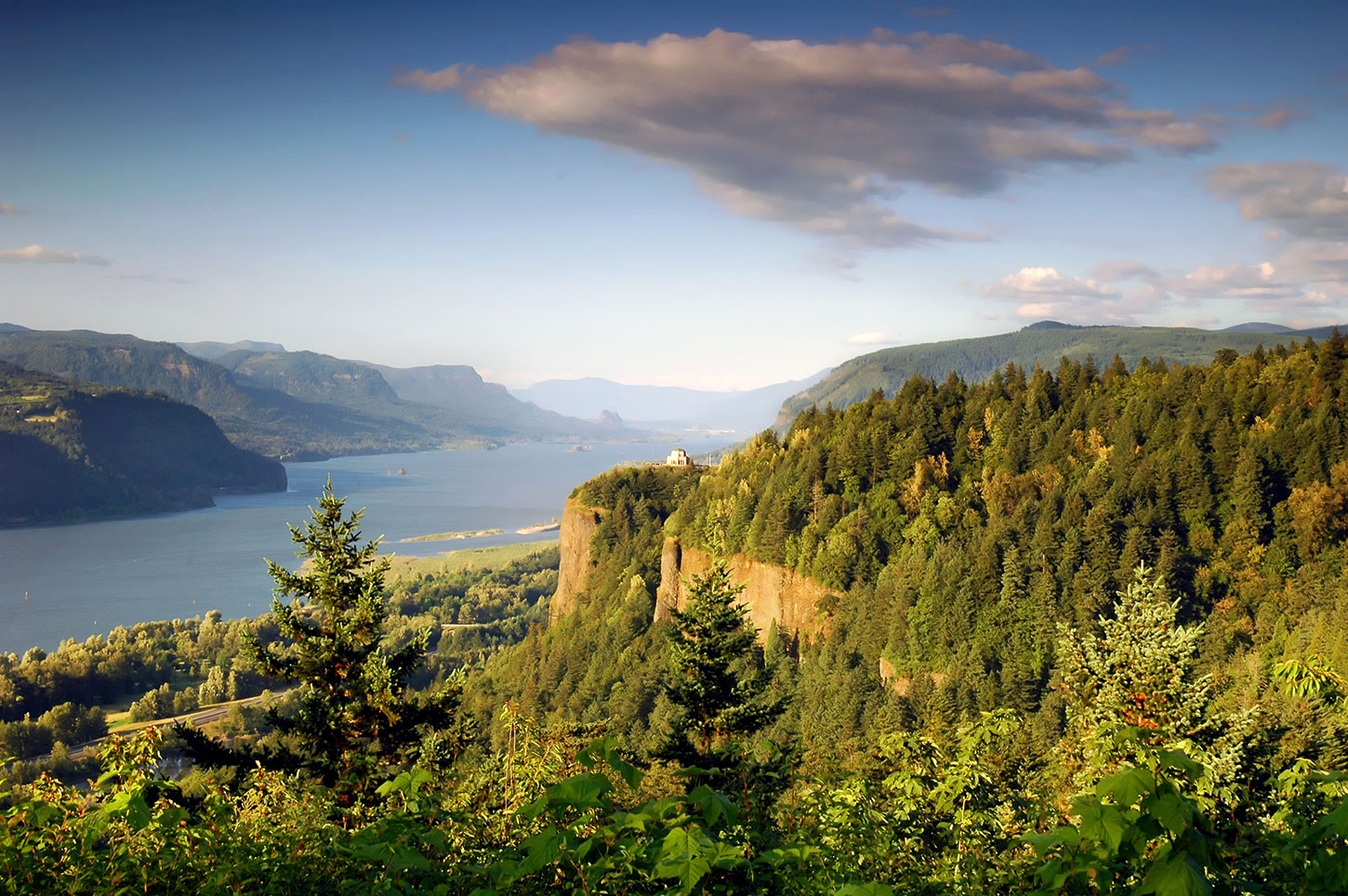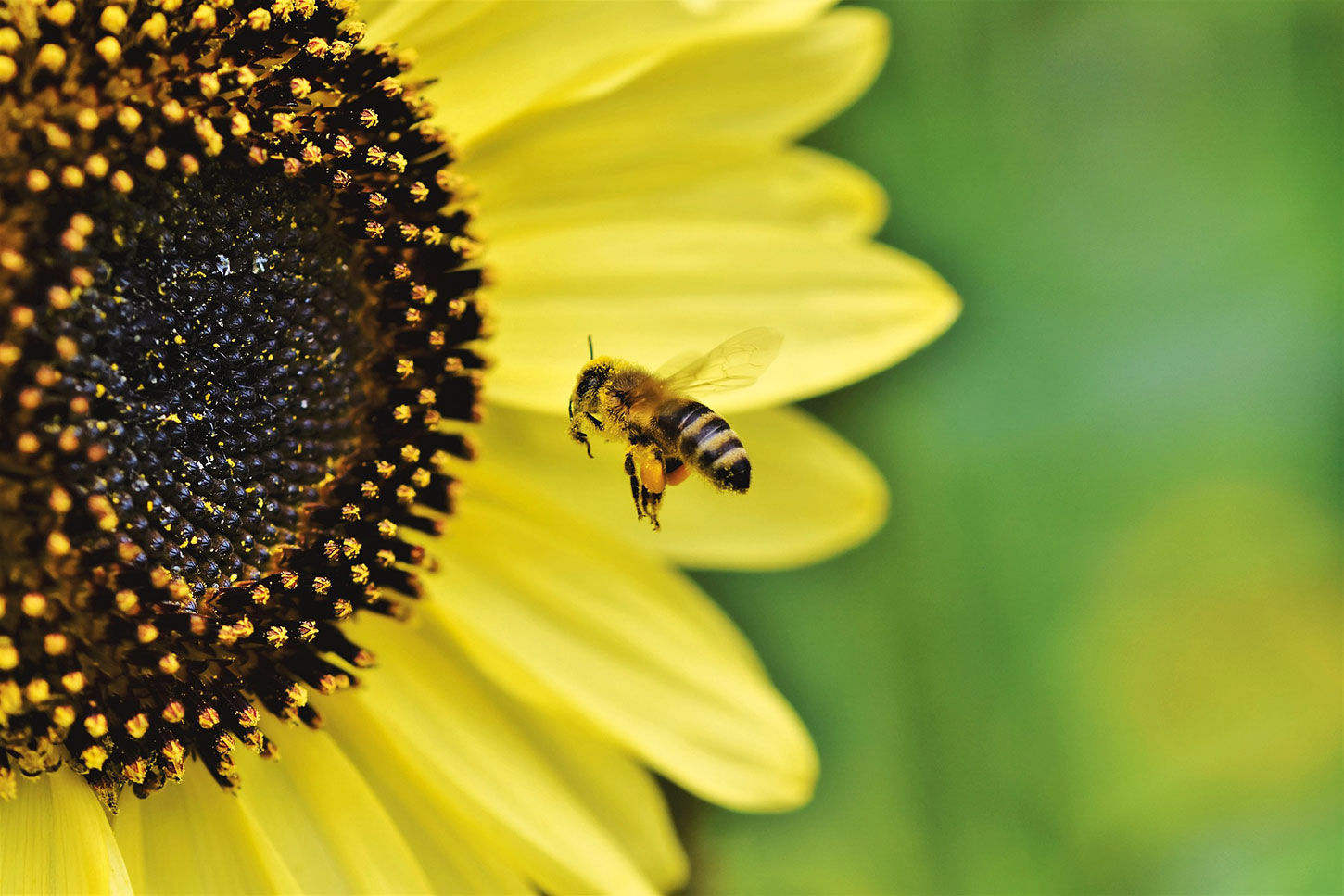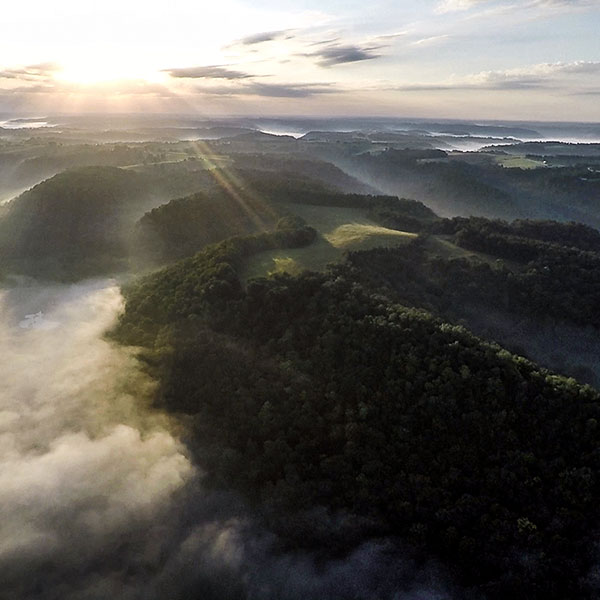Speaker 0 00:00:00 Welcome to soundscapes a terrain.org podcast. Today we'd like to invite you to enjoy Elizabeth Dodd's reading of her essay Providence, a piece exploring the context of the food she chooses to eat. Later, we'll have a chance to get closer to Elizabeth through conversation, we'll explore the forces driving her work. Here's Providence.
Speaker 1 00:00:19 Providence. I'm simmering Polish sausage sliced rounds like coins in a mixture of wine and water. And as soon as the liquid has evaporated and the meat begun, I'll spoon them over slurry of lentils, celery, and onions. Its wonderful. Really wonderful. Vegetables were cooked in bacon drippings, which I've been hoarding in the refrigerator, and then added to the lentils to simmer slowly all afternoon in the crock pot. These pork products were raised slaughtered and butchered locally. I actually met the people who handled the animal and processed the meat earlier in the autumn. I could have recited even more providence of an E evening meal, onions and carrots from the couple who run wa farm parsley in time from Elaine of Southside Gardens. But it's too late in the season for those fresh items. Still, I know precisely where this pig came from. I could plot it on Google Maps with a little narrative of its life born farrow, don't we say, of piglet birth, or is that only a transitive verb applicable to the subject mother and not the object offspring?
Speaker 1 00:01:33 I'm uncertain of the lexile complexities of animal husbandry. It was born on the south side of Z Road, then a few months later, moved maybe half a mile north to finish among the broken stalks of the summer Sweet corn in bottom land along the Kansas River. I have often ridden my bike along the road there before turning off to pedal uphill on the dirt road, gloriously named Swamp Angel. From there, the pick with truck north and West from 40 miles to Clay Center where Dykes Meat locker whole hogs are our specialty. Processed the animal into a freezer full of chops and bacon, loin and ribs. My friend Angela and I bought this pig from Darryl Parks proprietor of parks pasture pork, and we brought the meat home from Clay Center in her little civic hybrid, another 40 mile trip. She also took home some neck bones from which her husband makes spaghetti sauce.
Speaker 1 00:02:36 This sounds a little weird to me, but Angela says it's delicious. Did I mention the hams, the dyke, these, and I already transformed three into a huge of split piece soup. The sausage has brown nicely, time to eat for months. I've insisted on reciting the providence of our stuff from the farmer's market whenever I can. The cherry tomatoes and mustard greens from Elaine Moore Sweet Corn from Darryl Parks, thes and beets and sweet potatoes from the washes. Apples from Rhonda and Rod. One day I bought a quart jar of honey from a vendor whom I didn't recognize, and I asked him where the bees lived. Right here he answered, know really exactly where I wanted to know. I mean, right here. He assured me the hives are about five blocks south of where we're standing now, and I instantly knew the old neighborhood that abuts the levy, where a packed gravel bike path curves between the river and the city.
Speaker 1 00:03:44 Six or seven blocks, I guess, but call it five. Call it good. Once I watched bees swarming in a tree on campus, maybe 15 blocks away, a student had come into the classroom where I caught poetry writing, bursting with the news. There were bees going crazy outside, he said. So we all tripped out to have a look in a flower in crab. Apple hung a buzzing ji fat with bees dripping off the bottom like a wing suggestion of honey. Later I heard that a local beekeeper had come to collect this warm. What if this very jar of honey derived from the rising knot of pollinators that briefly had intersected lives with a room full of poets? I love the possibility the Land Grant University where I teach was the nation's first college established under the act of 1862. Its original mission was to bring a liberal and practical education to the sons and daughters of working people, farmers, mostly in the brand new state of Kansas.
Speaker 1 00:04:55 Our classroom was located one floor above the old dissection hall where prospective veterinary students more than a century ago, would watch their teacher cut up a horse taking notes. One of my students took a picture of the swarm on her cell phone to take back inside where a woman with an allergy to bee waited for our return. This evening's has less than a hundred miles of fossil fuel activity associated with its aromatic flesh. Even the animal feed is local, mostly local. Anyway, the piglet wasd with its mother's milk, of course, and then weaned with a coarse mixture of ground soybeans and wheat. Daryl raises a fair amount of this hog feed himself, sometimes does need to supplement with organic feed. One day in late, I drove out to his 20 round payment check and take look at his operation. Sure. He told me when I asked if I could visit, so I did.
Speaker 1 00:06:04 The parks family has farmed this part of Kansas for generations. They first homesteaded an area by the car river, known locally as Hunters Island. That place named dates to the 1903 flood, which changed the river course and left a portion of low lying land owned then by the hunter family in an oxbow of the former River Channel. But in the 19th century, the area was called Mo's Bottoms, where a largely German immigrant farming community up. The current parks property was purchased in the 1930s by Daryl's father, and Dar and his wife have worked it since the 1970s. After majoring in, I'm not making this up, parks management and conservation in college, and a brief stint working out of state Dar, his daughter returned to the farm the day I chose to visit their place was Hammerly hot. Darryl drove up sweating in a decades old John Deere tractor while I stood sniffing the dry breed suspiciously, but dry cottonwood leave and dust were what I smelled not manure.
Speaker 1 00:07:18 Then under those whispering cottonwood I was touring the premises. Darryl is what was once called bean pole thin, soft spoken, and seemingly a little shy at first. He warmed up quickly as we moved from shade to sun to shade again. As he described his operation. The pigs were housed in various little groups scattered across the landscapes. One shelter, three walls and a sloped roof. Looked a lot like the Garth Williams illustration of Wil Wilbur. The pigs home only larger. The piglets danced away on their delicate feet when I squatted down by their feet and spoke to them as if they were puppies. Two boards were housed nearby in a cinder block. Shed in separate rooms because of their aggression, but they too had open air, A fenced pen where they took turns, walling, and snorting. You know, they do have Ts, and if they were together, they might spend five hours or so staring at each other, then tussling, and you might have to go in with a two by four and separate them.
Speaker 1 00:08:26 It's calmer this way and calmly. We walked out into the full sheds house housed pregnant or nursing were supremely structures. Framed construction with a thick layer of insulation batting between the two by fours roofed with an arc of corrugated tin as we strolled through this pig village, some of the souths thundered and th from their sheds wanting nothing to do with us. Some of the piglets trotted back inside. I liked that the animals had some choice in the matter. They could bolt or hide whichever felt more comfortable. In the 1990s, Darryl attended a sustainable agriculture workshop in Myrtle, Missouri and learned how to make these cheap, rough sheds. The host farmer finished his hogs ons. Those were more accurately past your pigs than the parks CORs will be. At first, Darrell tried to plant enoughs to finish his hogs, but the animals rooted around and tore up the turf.
Speaker 1 00:09:37 No brass rings in their noses, I noticed, and as he observed, mildly they get more rain in Missouri that they do, but his new methods are serving him and customers like me quite well. Whereas once he had to vaccinate his pigs against various diseases and include antibiotics in their feed with these new methods, he does neither. Now, the old farrowing shed where all the piglets were once masked together stands empty and the animals move freely across their portion of his land. Of course, he does lose pigs occasionally. Recently, coyotes SN three, I can't thinking of the story of the three little pigs shelters outdoors. So his animals are vulnerable to a very old threat. The predator lurking around the periphery of the settlement, just waiting for a chance to strike. How old well pigs were domesticated some nine or 10,000 years ago, and not just once in that ch agriculture, the fertile crescent, but several times in different places suggesting that it wasn't the domestic stock itself, which spread, but the knowledge, the technology of TAing.
Speaker 1 00:11:00 The travel DNA sequencing of porcine mitochondria revealed that one of these domestications took place somewhere near Germany, a region that is still devoted to in the cuisine. My friend Gina told me that when she visited family in Germany, she was fed pork at every single meal, including cold cuts for breakfast, which she found pretty hard to take. A chemical engineer. She once spent weeks working in western Kansas on what's called a digester system to deal with hog farm runoff, a project that soiled her car's engine and put her off eating any pork whatsoever. For quite a while.
Speaker 1 00:11:45 Darryl and I hopped into his dusty pickup and drove to the cornfield where the parks pigs put on their final weight before slaughter a couple of shelter belts where trees still held their dry. The standing of the summers corn crop, big sloppy mud holes where the hogs were making best of the sun. We climbed down from the truck and he turned on a spigot. One of the pigs stepped into the stream of water, mouth open eyes pinched shut water cascaded from the animal's mouth pooling in the mud hole, let its feet. I could imagine the scene after we left pigs walling in the cooling mud while the afternoon sun toward the trees in the west. This idyllic image can be eclipsed by winter weather. A few years ago during a double whammy ice storm in blizzard that hit in December, Darrell lost 10 animals than the finishing pastures and sheds near the river where there's considerably less shelter from the wind.
Speaker 1 00:12:50 As we stood near the parch in cornfield, he described how on Christmas day he spent hours trying to haul dry straw to the pigs huddling together in the shedden, one vehicle stuck in a drift, so he had difficulty reaching the, since he keeps only about 35 south through the year, finishing four to 500 sale animals to lose tenant once wasn't trivial. I work for a niche market. Darrell explained he sells meat locally through the farmer's market at the local co-op called the People's Grocery, and he supplies the national brand Organic Prairie. Much of his soybeans, Milo, alfalfa, and corn are destined for the Kansas Organic Producers, farmer's Cooperative in the organic market. He might be able to get $17 a bushel for corn compared with six to eight for non-organic grain. It was clear he tried to keep overhead low. The pickup was the only vehicle I saw on the property that wasn't old enough to legally drink or run for national office.
Speaker 1 00:14:04 For a while, we tried to jumpstart a huge wheel, a truck with a covered bed that looked to me like it drove right out the 1940s into the, but the engine wouldn't turn over and he gave up. Instead, he told me about his plans. Next year, he wants to move the pigs to another section of the flat floodplain land and plant corn here where the pigs are mud wallowing and water swallowing. So the constant rotation will continue all over the farm, newly weaned piglets into their own sheds and heat into the breeding with the boards pregnants in the gestational huts with nursing litters in the several huts scattered among the weeds and across the road, fattening animals in the mud bath near the corn. None of the pigs were actually gambling in the pasture, but they all had access to the outdoors. Most were free to move around at least a little, and as Daryl said, this whole approach is kinder to the animals than keeping the mask together on concrete or in a single cramped building, or simply in a feed lot with hundreds of other hogs. Of course, there is the matter of killing them and eating them, but since I believe meat really is an important part of a ho diet for me, the question is how to meet my need more responsibly with a sense of both the future and the past. And I consider Darrell a kind craftman. His sweet corn is reputed to be the tastiest one can buy in our town. And each of these pigs represents ours of careful, deliberate, even individual care, as well as considerable knowledge. And I think wisdom too.
Speaker 0 00:15:57 Providence was written in 2013, more recently. Elizabeth dod was kind enough to sit down with soundscapes. Here's our conversation.
Speaker 2 00:16:06 Elizabeth, how did you choose the title of Providence and what does that mean to you?
Speaker 3 00:16:12 Um, well I love this word and I knew the word first from the art world. Um, the history of ownership that proves that something is genuine. Um, for example, a painting that hasn't ever been stolen or looted or isn't a forgery. Um, so it's the providence of a cultural artifact. And I wrote this particular essay in response to a prompt. This was for one of terrain dot org's themed issues when we did particular themed issues. Oh, interesting. And that one was for craft. And so I was thinking a lot about, um, local food artisanal foods as being, um, elements of, of cultural craft, um, and, and, and the local producers as artisans. Um, so I, I may have even started with the title, uh, which is very rare for me. Um, but then once you start digging into the etymology, um, you find out kind of, oh, but wait, there's so much more. And I, so I, I did the dive down into where the word came from, and of course from French and from the earlier Latin, the word has life in it, not just objects that might be in a museum, but to derive from, to come from connects to being born or springing forth. One of the earliest uses of provin as a Vern English has to do with crops springing forth. So that's where, that's where providence came from. Words always know more than we do. The words know so much more than we
Speaker 2 00:18:04 Do. Yeah. Great. That's really interesting. Thanks for sharing that. I also noticed that this piece, Providence, it has a really strong connection to a specific place. Would you say, does that kinda soul of place come into your work a lot? Is that an animating force for you?
Speaker 3 00:18:19 Yeah, places is indeed. I like your word choice there too. That, that it's an animating force. Um, but it's not just for me, it's not just place. It's also time, the way that even, even if you go into deep time places that we think we know well, were of course very different once I live in grassland country, which was once ocean,
Speaker 2 00:18:41 Right?
Speaker 3 00:18:42 I grew up in Appalachia, which was once connected to what we now think of as British isles. Oceans open and close continents move around. So deep time, human time, place and time are kind of the two coordinates for artistic thought that, that I've really been thinking about a lot in the last few years. Yeah. So for this one, I'm, I'm a transplant to Kansas. I didn't grow up here. Mm-hmm. <affirmative>, I, I came here for a job and instantly decided I need to put down roots. And I found out that in a grassland, most of the roots for prairie plants are much deeper than the plant that you actually see above the surface. Which means that if you're going to become native to a place, as West Jackson says, man, you gotta do your work. You gotta learn the history, you gotta learn plants
Speaker 2 00:19:38 Putting down roots deeper than what you see. I like that.
Speaker 3 00:19:42 We have a museum in town. It, it's a prairie museum, the Discovery Center, and there's a wonderful mural in it that shows some of these grasses, all of their roots, just sinking 30 feet down, um, into that soil,
Speaker 2 00:19:58 30 feet. Wow.
Speaker 3 00:19:59 It's, it's, it's a great metaphor,
Speaker 2 00:20:01 Right? Yeah, yeah. <laugh>, you also write in the essay providence about the question of meeting your need for meat responsibly. And I'm curious if you could say a little bit about what this responsibly, what that means to you.
Speaker 3 00:20:16 So responsibility, of course, here has to do first and foremost with environmental responsibility, ecological responsibility. And we all know if you're a meat eater, you have a pretty big carbon footprint in certain parts of the world. You have a really big water draw down here in Kansas, one where I live in Kansas, the major form of water pollution comes from the agricultural industry. So there's a lot. So the relationship to the environment that comes through simply the industry of food production was first and foremost in my thinking for this one. Mm-hmm. <affirmative>. But I also thought I really like the idea of knowing where my food comes from and having as much of a personal connection to the suppliers as possible and being able to respond to those individuals. You know, I, in the summer, I can see them every week in the winter, I can see them once a month at our farmer's market. So when, when I talk about meeting my need for meat responsibly, I guess I really did mean that, both in the global form of being a very privileged person for whom I could eat meat at every meal, wanting not to, of course, but also just wanting individual connection.
Speaker 2 00:21:36 Yeah. And do you feel any sense of responsibility towards animals themselves?
Speaker 3 00:21:43 I have to admit that that's not first and foremost in my, my thinking about this responsibility, of course, people who actually do live with animals in ways that I do not and who develop personal relationships with the very animals that they're gonna take to slaughter, they have deep roots in that kind of thought in ways that I do not. But yes, if you're a meat eater, it can't be cruelty free,
Speaker 2 00:22:07 Right?
Speaker 3 00:22:08 It just can't. And I know, of course so many people who have chosen not to eat meat at all. And I respect that as a decision.
Speaker 2 00:22:15 Well, we're not so different than animals. We don't live in a vacuum. Our actions have consequences. And we're part of this interconnected web with the animals as well. And there's no point in trying to get away from that.
Speaker 3 00:22:26 Absolutely. Well said,
Speaker 2 00:22:29 <laugh>. Thank you. This essay Providence is from 2013. Are there any ways that your views have changed in the interim or anything that's happened?
Speaker 3 00:22:39 So I still get to see Darryl and his wife Donna at the Farmer's market. You asked what might have changed in the interim. Well, I've, I've watched a family continue to grow and flourish and I just feel really, really good about that. And some of the other farmers are gone. The Wes farm has, has ceased operation with a death in the family and some changing dynamics. There's a new young family that's sort of filling their niche in our farmer's market. Young couple who usually are there with at least one grandparent, sometimes two, and now their infant daughter. So just watching the community of local farmers in the years since this piece was first composed and published has been fun. In terms of my philosophical views or ethical views now, I'm pretty much the same.
Speaker 2 00:23:28 We talked about this question of responsibility and I'm curious, are there other questions generally that you carry with you as a writer, as a citizen,
Speaker 3 00:23:38 I recently heard Barry Lopez speaking and he said one of the fundamental questions that we should think about any writer is, did her life make a difference? And that was the way he phrased it. He said, did her life make a difference? It seems to me we are in a time of widespread grief and anxiety, frequently despair, frequently rage,
Speaker 2 00:24:05 Absolutely.
Speaker 3 00:24:06 Looking for places where we can train our attention on light and sustaining joy while still insisting that we have to give at all of the threats to the planet, to our country, to our friends, to our fellow inhabitants of the planet. Having that, you know, frequently when people have LASIK surgery, they will have one eye corrected for close vision and the other eye corrected for distant vision. But I like that idea as a metaphor of having one eye trained for the near vision and the other one trained for the far vision. But of course we have to have the distant view as well. Mm-hmm. <affirmative>, the big political questions, how to matter, how to make a difference, both as a person, as an individual, as a human being and as a writer. In my case, as an editor, as a teacher, those questions, the dropdown menu of possible answers is long. Mm-hmm. <affirmative> and finding the answers for each day is also a challenge. Mm-hmm. <affirmative>, as a teacher, I see more and more of my students really struggling with anxiety, with despair. Yeah. Gazing into the future. I worry about them. I worry about us.
Speaker 2 00:25:23 Yeah. I think we can all relate to that
Speaker 3 00:25:25 Indeed.
Speaker 2 00:25:26 An impressive journey then that you've been hearing these questions and trying to walk this difficult line for decades.
Speaker 3 00:25:32 Don't we all?
Speaker 2 00:25:33 What are you working on now? Well,
Speaker 3 00:25:35 I'd like to tell you about the Dear America Project Simmons Bunton, our editor-in-chief and founding
[email protected] has been spearheading along with me and the poetry editor Derek Sheffield, an anthology of our letters to America that have been running since about two weeks after the 2016 presidential election. These letters to America have taken all forms. Some of them are true epistolary pieces. They read like letters, they feel like letters. A lot of them are kind of cries from the heart. Some are poems, some are fables. They come from scientists, from activists, from writers. And I've had a lot of joy and sustaining energy working with Derek and with Simmons and the various authors. We have 120 authors in this anthology. It will be appearing first week of March. I take a lot of heart from the heart that is shown in the letters that we've received from so many different kinds of writers.
Speaker 2 00:26:39 Wonderful to hear.
Speaker 3 00:26:41 For myself, I've been working on a lot of of essays about extinct or endangered or even mythical animals and their relations to place. My brother lives in New Zealand and for several years was working as the first general manager of one of the wildlife sanctuaries that is established to try to help preserve acutely endangered species. New Zealand of course, had almost no native land mammals. They had bats. Most of the niches, the evolutionary niches that we see filled with mammals were filled. Otherwise, the major browsers that would have been filled by deer or elk there or moa. So really thinking about New Zealand and it's amazing evolutionary place in the world has kind of led me in this project. And I've been fortunate to travel to the Galapagos Islands. Wow. I think about literal islands. I think about metaphoric islands. So that's one of the places I've been going in some of my own writing, both in poems and in essays lately.
Speaker 2 00:27:52 Fascinating. I'll be looking forward to what's forthcoming from you and from terrain.org at anthology. Oh, thank. Thanks for your time.
Speaker 3 00:27:59 Thank you very much.
Speaker 0 00:28:01 And parting, we'd like to offer a poem by Nathaniel Perry that explores the emotional sustenance offered by the non-human among us
Speaker 4 00:28:08 Country gospel crow alone on the only dead river birch. In a young stand, the sun, of course undoes the blackness of the birds packed feathers. When it leaves the tree, it's wings recross the air around the body. They lift to the sky, and every color we know boils out of their backs. Our day is half over the light stranger. Everyone will be happy over there. They say, where the crows will still be black. At least I hope there are crows. Does heaven have harbingers? Is there a place in light for what it lacks?
Speaker 0 00:28:50 Thanks for listening and for being a part of our community. We'd love to hear from you and hope you join us for another episode of Soundscapes. Until then, here's to training our attention towards sustaining each other and demanding times.






